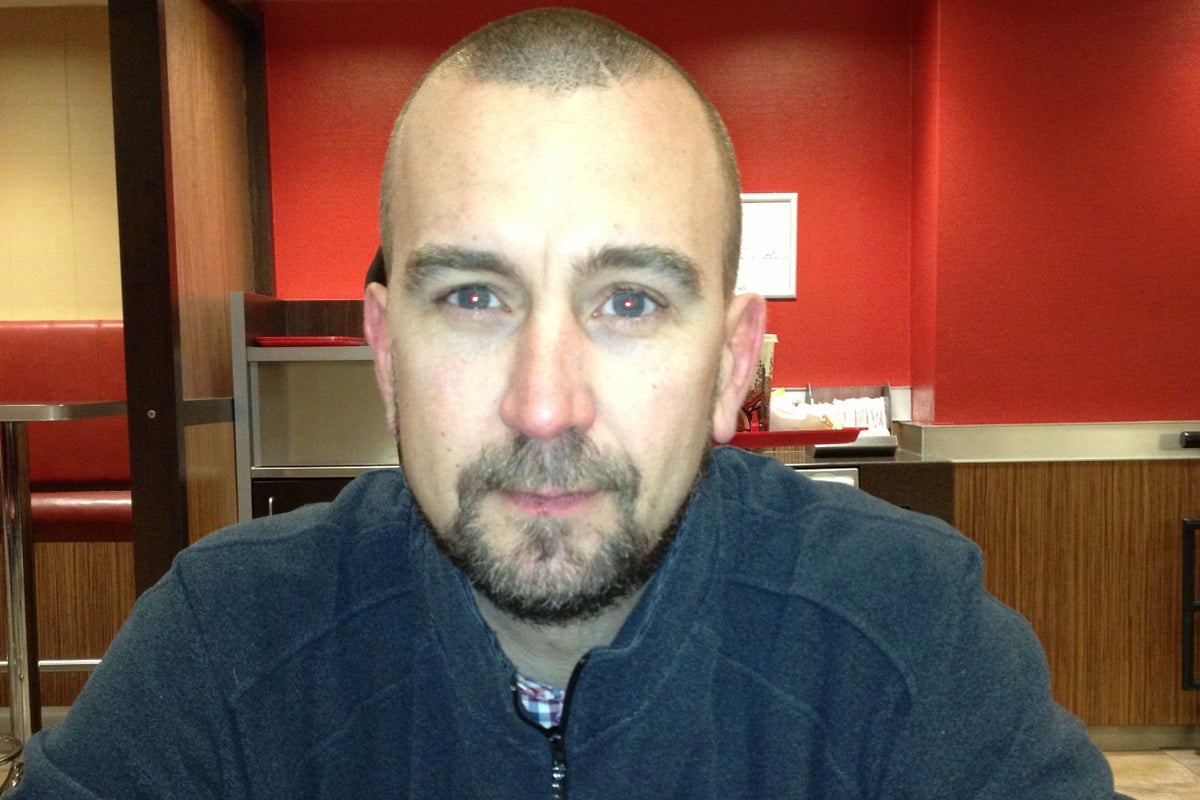
The daughter of a British aid worker murdered by a so-called Islamic State terror cell dubbed “The Beatles” is urging officials to reject a bid for one of its members to be transferred to a UK prison.
Bethany Haines, whose father David Haines was killed in 2014, told the Sun: “I beg the UK Government to act to make sure he never sets foot on these shores again.”
El Shafee Elsheikh, known as “Ringo” is serving eight life sentences in a US jail for his involvement in a hostage-taking scheme which involved torturing, beating and executing prisoners.
He grew up in west London before he left the UK for Syria in 2012, and was arrested by Kurdish-led Syrian Defence Forces in 2018 before being stripped of his British citizenship.
The former mechanic was handed eight concurrent life sentences by a US court in 2022, alongside fellow cell member Alexanda Kotey.
But Ms Haines has since received notification that he has applied to be transferred to a UK jail.
The notice, seen by The Sun, said: “This is to inform you that El Shafee Elsheikh has applied to transfer to the UK, the country of which the inmate is a national.
“The United States has prisoner transfer relationships with many countries. These treaties permit foreign nationals to apply to transfer and serve their sentence in their home country.
“Before making a decision, the US collects information about the prisoner, the views of law enforcement and any views provided by victims.”
The paper said it is believed his application has been made so that he can be closer to family and friends.
Ms Haines told the outlet: “I urge both authorities in the US and UK to see sense and make sure he stays where he is so we can continue to attempt to rebuild our lives.
“He left this country to bring terror to the world and inflicted the most appalling treatment on my father and others when he held him captive.
“It’s an outrageous insult to our families for him to apply to return to one of our prisons for an easier life.”
She added: “As well as better conditions here, my biggest fear is he one day walks free and would be allowed to live within hours of the same place I live. It’s a horrible thought.”
Mr Haines, from Perth, was captured by militants in Syria in March 2013 while delivering aid to the war-torn country.
The father of two was beheaded in 2014 after being held by “The Beatles”, who were given the name because of their distinctive British accents.
Footage of Mr Haines’s murder was posted online.
His remains have never been discovered.
In a submission to the US Department for Justice responding to Elsheikh’s application, Ms Haines raised concerns the terrorist is “manipulating the system” to get better conditions in prison.
She highlighted that for example at high security HMP Belmarsh, prisoners have work opportunities as well as access to TV and video game consoles.
Her comments published in the Sun added: “In addition, those who share the same views as Elsheikh highly praise him for his crimes and he would be treated as a ‘celebrity’ by some prisoners.
“He would pose a risk through his radicalisation of other prisoners.”
Under the prison transfer agreement between the US and UK, both states need to agree to the move of a prisoner.
A Ministry of Justice spokeswoman said: “We have not received any application for Mr Elsheikh’s transfer from the US authorities but we have the right to refuse any request and any prisoner who is transferred to the UK would serve the rest of their sentence here.”
A third “Beatles” member, Mohammed Emwazi, dubbed Jihadi John and who was believed to feature in shocking videos of IS beheadings of a number of captives, was killed in a drone strike in 2015.
Meanwhile British Muslim convert Aine Davis, who was suspected of also being part of the terror cell was jailed for eight years in 2023.
